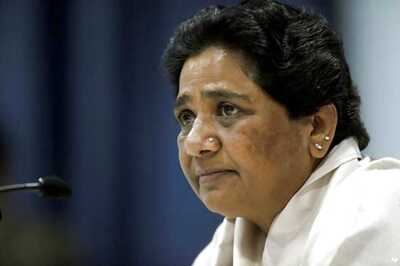
views
The limited number of government jobs and low business sentiments are also causing inequalities in demand for gainful employment, seriously hurting the Indian job market. In this dynamic of seizing opportunities abroad, the National Skill Development Corporation (NSDC) and the Skills Council of Canada (SCC) recently formed a strategic partnership to address critical workforce shortages in Canada. This partnership demonstrates that it is possible to create global employment opportunities for skilled workers and reduce the skill gap by increasing the supply and demand of the two countries’ economic resources.
The rapid growth in the global economy and the development of technology have created a demand for professionals all over the world. Against this background, India is realising its potential to become a global economic powerhouse by leveraging its young workforce. Partnerships with countries with an ageing population and labour shortage will increase the employment of Indian workers worldwide.
Unfortunately, there is a mismatch between the youths’ skills and their desire to get better placements in countries like Canada, the US and Australia. Wacky promises by the immigration companies to encourage outbound migration of youth without required skills are nothing but a cruel joke, which must be avoided and one should accept the challenge of unprecedented underemployment.
NSDC along with Ernst & Young (EY) conducted a ‘Global Skill Gap Study’, which showcased an in-depth analysis of the global workforce markets with a prime focus on leveraging the opportunities to benefit the Indian workforce. The study highlighted that several nations would face workforce shortages in the foreseeable future and mapped out the corresponding opportunities that these shortages present for the Indian workforce.
Canada is currently experiencing workforce shortages in sectors such as transportation, construction, agriculture, health, beauty and wellness, IT, hospitality and retail. There is no doubt that having the right skills for young people should be the most important thing in meeting the Canadian workforce. It is hoped that the NSDC and SCC partnership will provide Indian workers with the knowledge and skills necessary to thrive in the new workplace. According to the Royal Bank of Canada, there were approximately 300,000 vacancies in Ontario alone in December 2022, requiring similar skills to Canadian employers. NSDC should facilitate the training and development of office staff across the country. It is hoped that this partnership will facilitate the transfer of workers from India to Canada.
An efficient system should ensure a smooth transit from India to Canada after an extensive skills screening process to match newcomers’ skills with established employers everywhere, useful for newcomers and the Canadian market. The SCC-NSDC partnership will demonstrate the power of international cooperation in solving local problems and promoting economic growth in both countries.
To bridge the global shortage of workforce in the coming years, by reaping the demographic dividend of the young Indian workforce, India International Skill Centres (IISCs), aimed at imparting international standard skill training to youth and enhancing overseas opportunities for them, have the potential to transform our country into the skill capital of the world. IISCs will also have a wide network of partner organisations and overseas recruiters to facilitate the supply of skilled and certified workforce in other countries.
These partnering organisations will work with the NSDC to aggregate demand from overseas markets. The centres will have services such as mobilisation, counselling, skill training, pre-departure orientation, foreign language training, placement and immigration and post-placement support. India has signed memorandums of understanding and other administrative agreements in the field of apprenticeship and skill training with Germany, Belarus, the United Kingdom, France, Australia, Japan and Qatar.
Government initiatives to improve or impart skills to our youths have not been successful in the past. This hints at a systemic problem that affects the talent ecosystem. A major challenge our unemployed youth face currently is the mismatch between their skills and the needs of global job providers. Search costs are prohibitive for employers and a candidate’s qualifications are difficult to verify. There seem to be many jobs available on different platforms but there is no real way to establish the quality of job roles. For someone to successfully navigate through this maze would be almost impossible. Similar issues plague the arena of skilling. Candidates looking to upskill themselves find it difficult to connect themselves with credible skill providers, and the so-called ‘certified’ trainers often do not have the required skills to make them decently employable globally.
National Skill Qualification Framework (NSQF) should be globally aligned with certificates. There should be a focus on the identification of transferable skills. This can be done by developing a skill or trade matrix; and highlighting the overlap of skills across different trades, such as information and communication technology (ICT), knowledge of languages, beauty-wellness etc. The most common transferable skills across the world should be made part of the employable skill development curriculum.
As an industry expert, I can vouch that by 2047, India will be the world’s largest exporter of skilled workforce, and the Indian economy will reach trillions of dollars. In a country of 1.4 billion people, 65 per cent of whom are young people, imparting skills to all must be at the centre of all policies and activities. Build an alien together to create an ecosystem for overseas placement.
The writer is Co-founder and MD, Orane International, training partner with National Skill Development Corporation (NSDC), Network Member, India International Skills Centres, an initiative of GoI. Views expressed in the above piece are personal and solely that of the author. They do not necessarily reflect News18’s views.




















Comments
0 comment